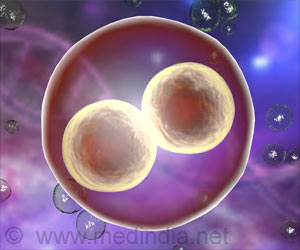“For the first time, our model is giving us insight into the human leukemia process. Ultimately, we may be able to prevent the acute illness by treating it in its earliest phase, when it is preleukemic, to prevent its progression to full-blown leukemia,” said Dr. John Dick, Senior Scientist from the laboratory of Princess Margaret.
‘CD117/KIT is a unique protein present in disease-driving stem cells. Several small molecular inhibitors against this protein demonstrated significant efficiency in eliminating the preleukemic stem cells.’
The team used human down syndrome cells acquired from a tissue biobank and an advanced CRISPR/Cas9 approach in their study. During the analysis, they detected preleukemia-specific cellular and genetic events. Notably, the team found that as early as the second trimester of a fetus with down syndrome, preleukemia originates from the long-term hematopoietic cells with a peculiar kind of mutation called GATA1 mutation.
The transition from preleukemia to acute leukemia occurs only if the extra copy of chromosome 21 and the GATA1 mutation are in place. “We actually created a human disease in a preclinical model by showing how the genetically edited, as well as the normal human blood stem cells, behave in it, and we succeeded in recreating the precise, progressive steps of how leukemia develops,” says Dr. Dick.
Another interesting finding from the study is that the CD117/KIT, a unique protein on the disease-driving stem cells as a cell surface marker. Small molecular inhibitors demonstrated significant efficiency in eliminating the preleukemic stem cells.
The researchers highlighted how their findings could be expanded to other childhood cancers and transform the pediatric cancer field.
Source: Medindia



